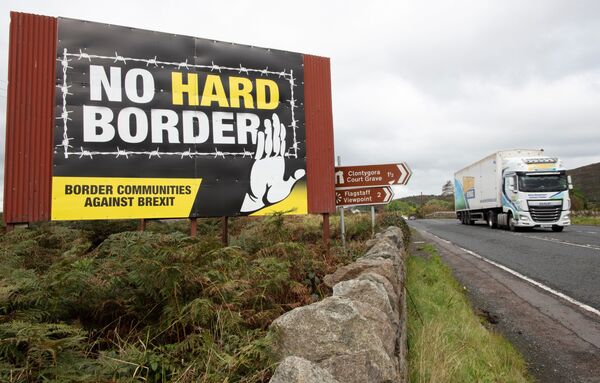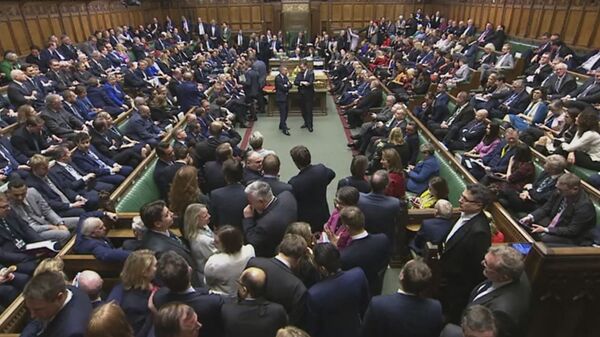"We are ... concerned about the overall state of readiness," the House of Commons’ Committee on the Future Relationship with the European Union said in a report released less than two weeks before the UK completes its departure from the bloc.
The cross-party committee said some decisions on infrastructure have been taken "too late" and that businesses continue to be held back by restrictions imposed to control the spread of COVID-19, a lack of detailed guidance and continued uncertainty over the final terms of the UK-EU future relationship.

It also said that despite the "pragmatic" solution reached by the UK and the EU to prevent a land border between Northern Ireland and Ireland in the event of a no deal Brexit, the lawmakers considered that the citizens of Northern Ireland deserved to know far sooner the terms of trade within their own country.
"Some progress has been made. We welcome the agreement on the implementation of the Northern Ireland Protocol, for example. But we are worried about the consequences of trucks not having the right paperwork, traffic disruption around ports, and the UK’s security being affected by loss of access to EU law enforcement databases," Committee chair Hilary Benn said.
The United Kingdom left the European Union on January 31, but as part of the withdrawal agreement, both sides entered an 11-month transition period to negotiate their future commercial relations.
Trade talks have been at an impasse for months over wide divergences over fishing quotas, the level-playing field — the set of common rules and standards designed to prevent businesses in one country from undercutting their rivals in other countries — and governance.
If no trade deal is secured before the year’s end, the World Trade Organization's rules will come into effect starting in 2021, including customs tariffs and full border checks for UK goods going across the English Channel.



